Get Happier School Program News
8 Strategies for Getting Happier during the Pandemic (For Educators)

1. Focus on Empowering Thoughts!
I have found myself thinking about how to counteract some of the difficult information we tune into every day. The constant stream of media coverage, the conflict in the world at large, politics, and even misinformation can be stressful. The two posters below will help you to bring some balance back to the thoughts you are thinking and alleviate the stress from the constantly changing external world! Why not print them out and put them on the fridge at home, the staff room or in the classroom.
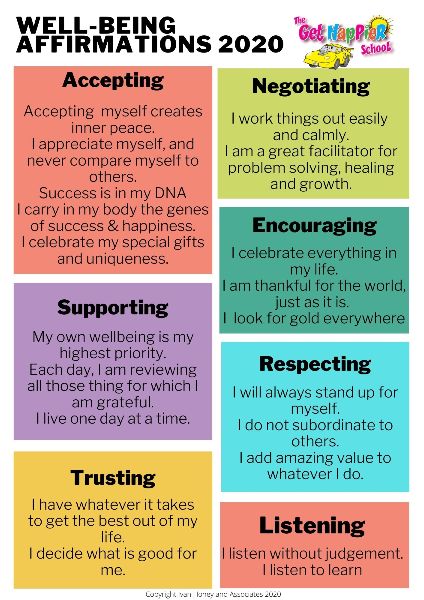
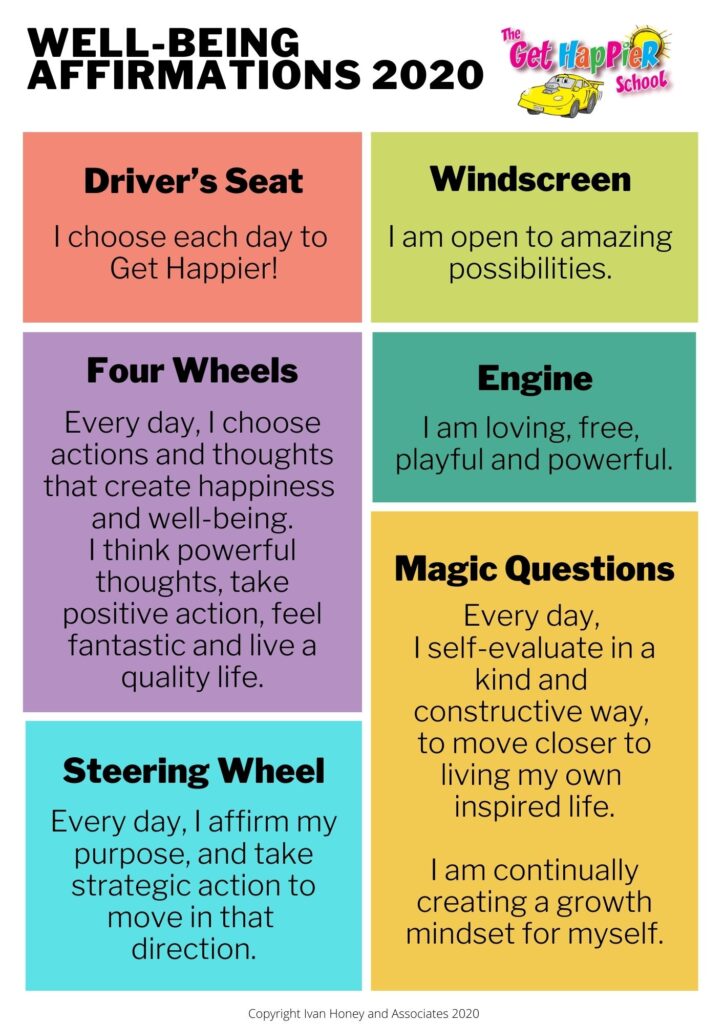
2. Expect Challenges
The common fantasy that we need to be happy all the time is a key source of stress. But when we recognise that life is a journey and ups and downs are normal, we no longer panic when we are challenged. If we look back on our lives, we clearly see that those events we considered terrible, actually contained powerful learnings that have helped us live a more satisfying life. Watch any movie, read any story, and you will see the same pattern: The Hero’s Journey.
It is only when we stop and reflect, that we see what is truly important and discover new insights that can transform our lives.
Find out about the hero’s journey by watching the movie, ‘Finding Joe’ you can watch it for free on here.
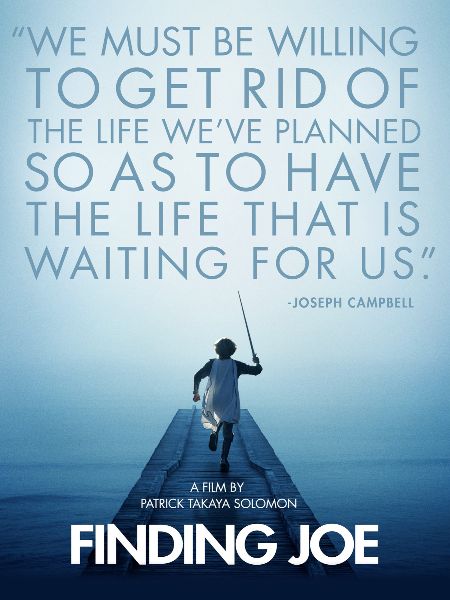
3. Live in the Present
The harm caused by the pandemic can bring about feelings of powerlessness and fear. This will result in a downward spiral of thought and action, thus preventing us from seeing the best way through our present challenges. So, when we feel this way, immediately take action to do something enjoyable or constructive, and shift our thinking to what we can do to feel better right now. At the same time, it is really helpful to have some simple positive affirmations that can help us to quickly refocus. Write it on the screen of your computer or phone as a regular reminder!
4. Always Seek Balance
When we are in balance, we are best able to make effective choices and think creatively. Always aim for balance. Our needs to feel safe and secure, to connect, to learn, and have fun, to create choices for ourselves and to be empowered may require us to discover new ways to meet them. We can always ask ourselves which of these needs are out of balance and find a way to meet them. If you are feeling lonely, for example, find a way to connect or talk with someone. If you are feeling disempowered, do something useful. If you are feeling worn out, have a rest!
5. Use the Get Happier Formula
Ask yourself these questions daily:
- Am I traveling on the Open Roads, or am I wasting my time and energy by blaming, criticizing, and complaining?
- Am I in the driver’s seat of my life or am I allowing circumstances to control me?
- Am I looking for obstacles or opportunities?
- Am I allowing myself to be stuck in an unproductive focus on painful feelings and physical symptoms?
- Am I taking responsibility to meet my needs effectively and get happier, or am I expecting others to do it for me?
- Am I steering myself in the direction of what is really important to me, or am I allowing myself to be distracted by less important things?
- And finally, am I actually taking action (however small) to get closer to being happier?
A friend found himself drifting into an unproductive, negative state, especially in the morning where he slept in until the last minute. He then found himself grumpy and rushed, ending the day exhausted and discouraged. He began by setting the alarm and placing it away from his bed so he had to get up to switch it off. This was followed by a workout and a short relaxation session. As a result, he approached his day with energy and enthusiasm and managed his relationships much better.
Here are some affirmations some teachers recently created using the Get Happier framework.
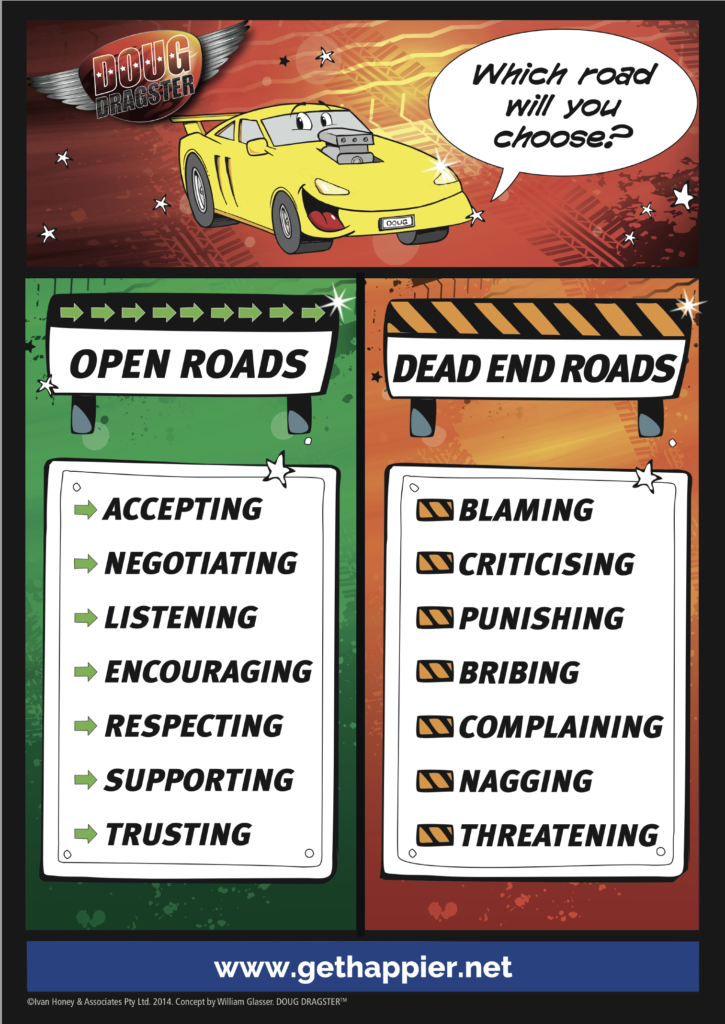
6. Take Charge of your Stress Levels
More than ever before, our state of mind will determine everything in our lives. No-one will wake up this morning and ask themselves, ’How can I make Ivan’s life happier today?’
When I am fully responsible for my well-being, I truly understand that ‘If it’s to be, it’s up to me!’ I will then build a more resilient life and become more creative and flexible. I will let go of old thought patterns and habits that no longer serve me, and plan for habits that will help me get the best out of each day. In particular, I will not allow events or other people to sabotage my happiness.
7. Manage Challenging Feelings
When we understand and accept that all feelings are important, we are less distressed when we experience frustrating or painful feelings. When we stop labeling feelings as good or bad, we can listen to what they are telling us instead of reacting. Our senses tell us when we are in danger: our painful feelings likewise act as an important signal to tell us that we need to change our thoughts or actions. Welcome and appreciate all feelings, recognise what they are telling us, and take action to move back in control.
8. Become More Mindful
When we are caught up constantly in ongoing crises or when we switch off altogether, we are at the mercy of other people and events. Giving ourselves at least five to ten minutes daily to deliberately relax and refocus through a mindful activity of your choice will help reset your state of mind. You can use a relaxation script like this (Progressive Muscle Relaxation by Ivan Honey), go for a walk or run, exercise, or do something nice for yourself.
Finally, no mindset can help us if we listen to the victim mindset, which tells us that we are powerless in this world. Reminding ourselves that we always have a choice is the foundation for wellbeing.
The last word goes to Dr. William Glasser!
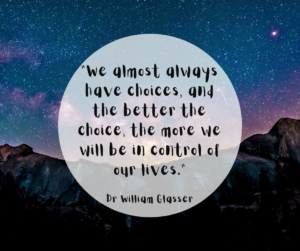
Don’t forget about the free resources on the Get Happier Project website for children and families. Encourage your school families to download them, and some of the activities will even supplement the Get Happier program games that you already use in your classroom. Get Happier Schools also have access to the video training series which focus on well-being.
We are never too young to learn to be kind to ourselves!
